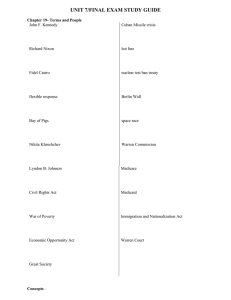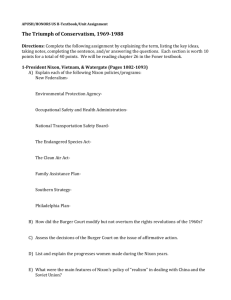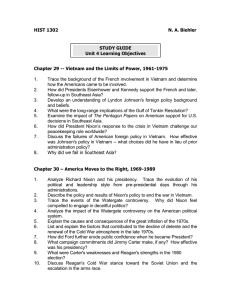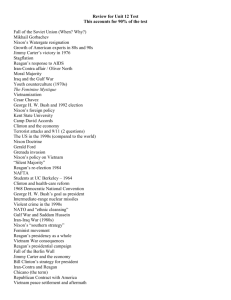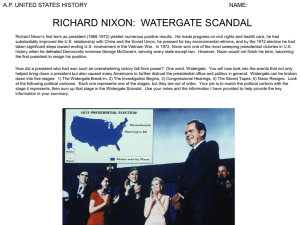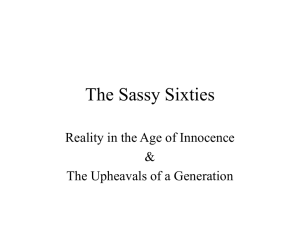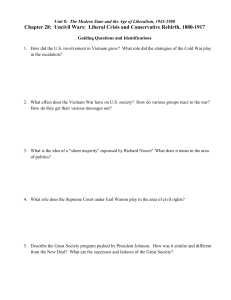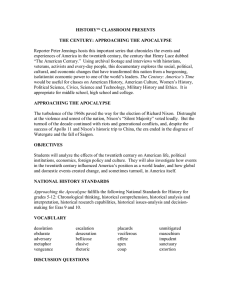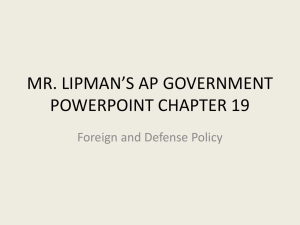Unit 26 Topic and Term Outline
advertisement
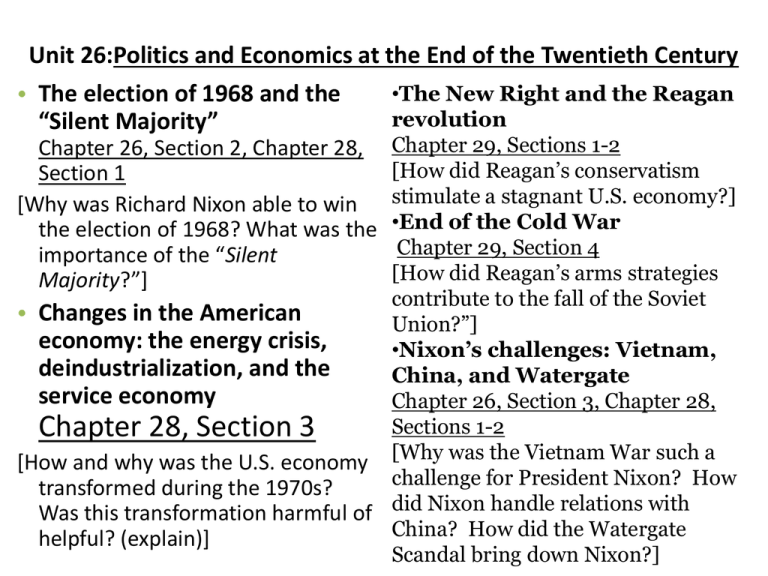
Unit 26:Politics and Economics at the End of the Twentieth Century • The election of 1968 and the “Silent Majority” •The New Right and the Reagan revolution Chapter 26, Section 2, Chapter 28, Chapter 29, Sections 1-2 [How did Reagan’s conservatism Section 1 [Why was Richard Nixon able to win stimulate a stagnant U.S. economy?] the election of 1968? What was the •End of the Cold War Chapter 29, Section 4 importance of the “Silent [How did Reagan’s arms strategies Majority?”] contribute to the fall of the Soviet • Changes in the American Union?”] economy: the energy crisis, •Nixon’s challenges: Vietnam, deindustrialization, and the China, and Watergate service economy Chapter 26, Section 3, Chapter 28, Sections 1-2 Chapter 28, Section 3 [How and why was the U.S. economy [Why was the Vietnam War such a challenge for President Nixon? How transformed during the 1970s? Was this transformation harmful of did Nixon handle relations with China? How did the Watergate helpful? (explain)] Scandal bring down Nixon?] Essential Vocabulary Unit 26 Terms [all fair game for the next test] • Hubert H. Humphrey’s call to end bombing of North Vietnam • “Middle America” • “Peace with Honor” • “The Silent Majority” • Camp David Accords • Iranian Hostage Crisis • Helsinki Accords • Stagflation • Inflation • OPEC • William F. Buckley • Televangelists • “Moral Majority” • Reaganomics • Deregulation • Robert Bork nomination • • • • • • • • • • • • • • • • • Peace through Strength Reagan Doctrine Grenada Invasion Iran-Contra Scandal Perestroika Glasnost Boris Yeltsin Vietnamization My Lai Massacre Pentagon Papers War Powers Act Southern Strategy New Federalism The Family Assistance Plan Détente SALT I/II Watergate Scandal
